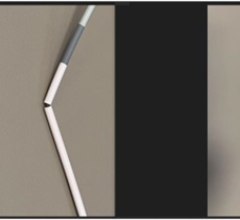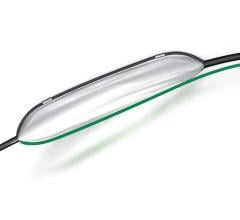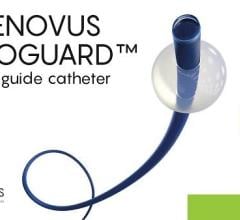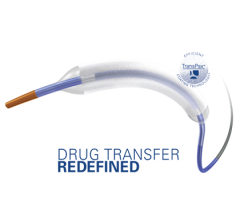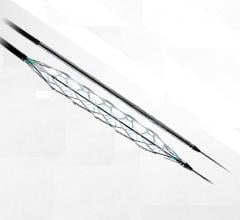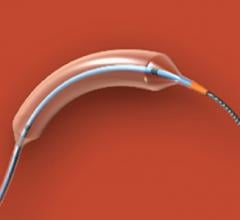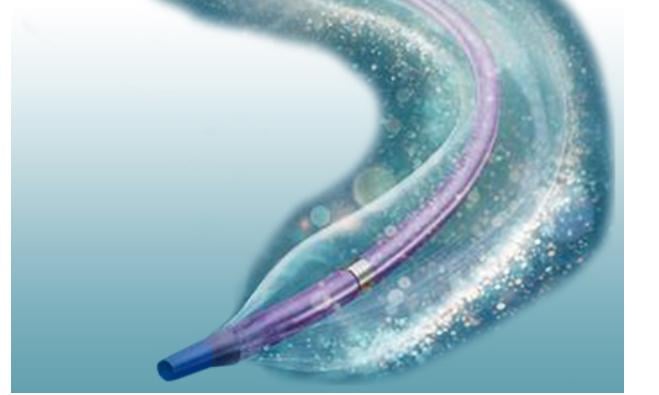
November 21, 2019 — The U.S. Food and Drug Administration (FDA) has cleared the Medtronic In.Pact AV drug-coated balloon (DCB) for the treatment of failing arteriovenous (AV) access in patients with end-stage renal disease (ESRD) undergoing dialysis.
AV fistulae are created and used to enable hemodialysis for patients with ESRD. Over time, vessel restenosis limits the ability to use AV fistulae effectively. In order to restore function, patients often undergo one to three maintenance procedures per year,[1] which can result in significant disruptions to critical hemodialysis care and increased costs to the healthcare system. Pivotal randomized trial results from the IN.PACT AV Access Trial have shown In.Pact AV paclitaxel-coated balloon can extend the time between reinterventions by maintaining AV access site patency, therefore maximizing a patient’s uninterrupted access to lifesaving dialysis care.
“In many cases, AV fistula are considered lifelines for patients with ESRD as they are the primary access point for life-saving dialysis treatment. When these access sites fail, patients experience delays in their dialysis treatment and require multiple reinterventions to keep the site functioning,” said Vincent Gallo, M.D., interventional radiologist at Holy Name Medical Center in Teaneck, New Jersey, and an investigator for the IN.PACT AV Access Trial. “With this approval physicians now have access to a safe and extremely effective therapy to slow the progression of restenosis, which results in fewer reinterventions and disruptions in care for these patients.”
The FDA approval is based on data from a prospective, global, multicenter, blinded, randomized (1:1), investigational device exemption (IDE) study, which enrolled 330 subjects, and evaluated the safety and effectiveness of the In.Pact AV DCB at 29 sites in the United States, Japan, and New Zealand. Early data presented at the Cardiovascular Interventional Radiological Society of Europe (CIRSE) met the primary endpoints in demonstrating the comparable safety and the superior effectiveness of device compared to percutaneous transluminal angioplasty (PTA). Patients treated with In.Pact AV DCB maintained patency longer and required 56% fewer reinterventions compared to those treated with standard PTA through six months. Through 12 months the data also showed no difference in mortality rates between the In.Pact AV DCB group and the PTA control group. Finally, data presented at VIVA 2019 demonstrated superior patency was achieved with In.Pact AV DCB versus PTA in both de novo and restenotic lesions, and all studied types of AV access.
“Until now, there were virtually no therapies available to treat AV fistulae lesions that had demonstrated an ability to maintain primary patency and reduce reinterventions over time,” said Robert Lookstein, M.D., national principal investigator in the U.S. and professor of radiology and surgery, vice-chair of interventional services, and medical director of clinical supply chain at Mt. Sinai Healthcare System in New York, New York. “In the largest AV DCB pivotal study to-date, In.Pact AV DCB demonstrated the highest primary patency rate through six months and significantly lowered the rate of reinterventions required to maintain patency. With this evidence and approval in hand, we now have a technology that provides a significant clinical benefit of a 56% reduction in repeat interventions, which I believe is a huge win for the hemodialysis community and the patients we treat.”
The In.Pact AV DCB, leveraging technology from Medtronic’s In.Pact Admiral DCB platform, increases blood flow and reduces thickening of the vessel wall by delivering the proven anti-proliferative drug paclitaxel. This drug penetrates deep into the vessel wall to prevent restenosis and has the potential to extend time between reinterventions. In 2016, the CE mark indication for In.Pact Admiral DCB was expanded for the treatment of failing arteriovenous (AV) access in patients with end-stage renal disease undergoing dialysis.
For more information: www.medtronic.com
Reference:

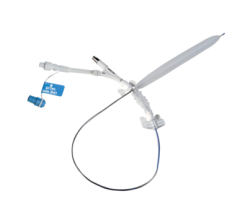
 June 13, 2024
June 13, 2024 
